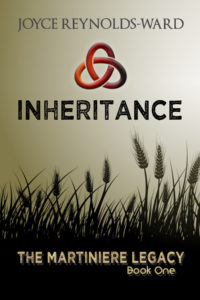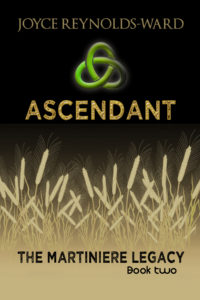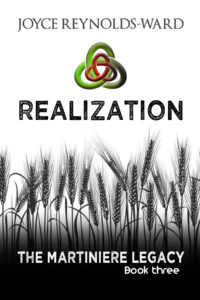Once I realized that the basic story of The Ruby Project had expanded into a trilogy arc, I decided that instead of writing one book, then releasing, etc etc over the course of a year or two, that I would just sit down and write all three books sequentially. One reason for doing this was utter frustration, based on my previous experience with writing series (The Netwalk Sequence, Goddess’s Honor).
When I wrote Choices of Honor and Judgment of Honor, I found myself needing to go back to previous books to maintain continuity in the Goddess’s Honor series (we won’t talk about the continuity messes in The Netwalk Sequence, which I plan to go back and fix in the ten-year-reissue in 2021). Yes, I’d been writing side stories to fill out the backstory of the series, but there were the niggling little details and things I would have done differently based on what I knew about the main characters by the end of Judgment. At that time, I swore that I would either have the full arc of the series in mind and create detailed bibles and synopses to make the damned thing work over the course of several years, or else I would write them all first and then release them. The Ruby Project-now-The Martiniere Legacy appeared to be the sort of series where writing them all first, then release, would be effective. I had several reasons for doing this.
First, I had a strong conception of the overall series arc as well as the individual book arcs. I knew where I was going to end up, and that goal became clear toward the end of Inheritance. The stories divide neatly into parts of Gabe and Ruby’s story in their progression toward that goal–and it is both their stories, from Ruby’s point of view. Both Ruby and Gabe grow and change within each book, as they meet each challenge thrown at them while focusing on the overall goal. This series was particularly easy in that respect. I don’t know if that reflects experience on my part or the nature of the story. Legacy does fall into nice, rational divisions. It might have been a more difficult endeavor to do this with the Netwalk books, but then again, that was my first series and I was still figuring things out.
Second, the overall word count of The Martiniere Legacy is around 280,000 words, similar to that of John Steinbeck’s The Grapes of Wrath. I read Steinbeck’s Working Days (his diary of writing Grapes) while writing Ascendant, and noticed significant process similarities, particularly in daily word count and the concern about pacing myself too quickly toward the end. 280,000 words is doable in six months, which fits my typical drafting pace.
Third, instead of poring over 3-4 books while writing the last one, I could simply refer back to what I had written in the previous two. While writing Ascendant, I had Inheritance up on my desktop screen while composing on my laptop. While writing Realization, I had both books up on the desktop. This was a huge change from my previous process. Not only could I refer back to what I’d written in a previous book, but if I needed to change something to fit the turns that the other books took (I had waaaay too many consecutive conspiracies at one point and needed to prune them back as some were stronger in the end than others), I could tweak it. I didn’t realize how big a deal this could be until I was actually going through the process of laying down breadcrumbs to hint at future developments. While I tried to write each book so that it could be read alone, I really needed to have those links to get it done at the end.
There were other bits and pieces that came along with this process. I planned book and series arcs for each character, though some drastically changed (Justine, for one). There were still pieces that didn’t get explicitly fleshed out (Justine as the Rescue Angel, though there’s a lot of hints). I had a 5″ x 8″ notepad where I made a lot of these notes and I liked that process so well that I think I may buy a replacement pad when it’s gone. Not just the size but the weight of the paper as opposed to legal pads really was noticeable. A little thing, but it can make a difference when organizing and shuffling papers while working.
It also didn’t hurt that I was in Covid-19 lockdown while writing the Legacy. There have been days when I wanted to escape from this world into that of the Legacy. Even with all its problems it just was a cheerier place to be.
Will I do this again? Probably. Not so much with the next book–the probable sequel to Klone’s Stronghold, which will be Stronghold Defender. At this time I don’t know if I’ll have a followup book to Defender, or if Klone turns out to be a prequel for another trilogy. Still thinking about that. I need to rough out what Defender is going to look like. One drawback with this process, for me at least, is that I end up not being able to do a lot of other writing. Again, I don’t know if it’s reflective of circumstances in the world around me or if it is a comment on the nature of the Legacy.
I do plan to write another book in the world of the Legacy, however. It’s going to be short and probably stylistically different, perhaps nothing more than a novella. But a character that comes on board late in Realization has a story to tell, so I’m going to try to write it. I’m also going to be writing and releasing little sketches tied to pieces of the Legacy as well. We’ll see how it goes.
The Martiniere Legacy: Book One, Inheritance; Book Two, Ascendant; and Book Three, Realization will be released in Fall 2020, along with side stories and sketches. More specific information can be found in my newsletter which comes out toward the end of each month. Sign up for my newsletter at https://tinyletter.com/JoyceReynolds-Ward for release dates.



